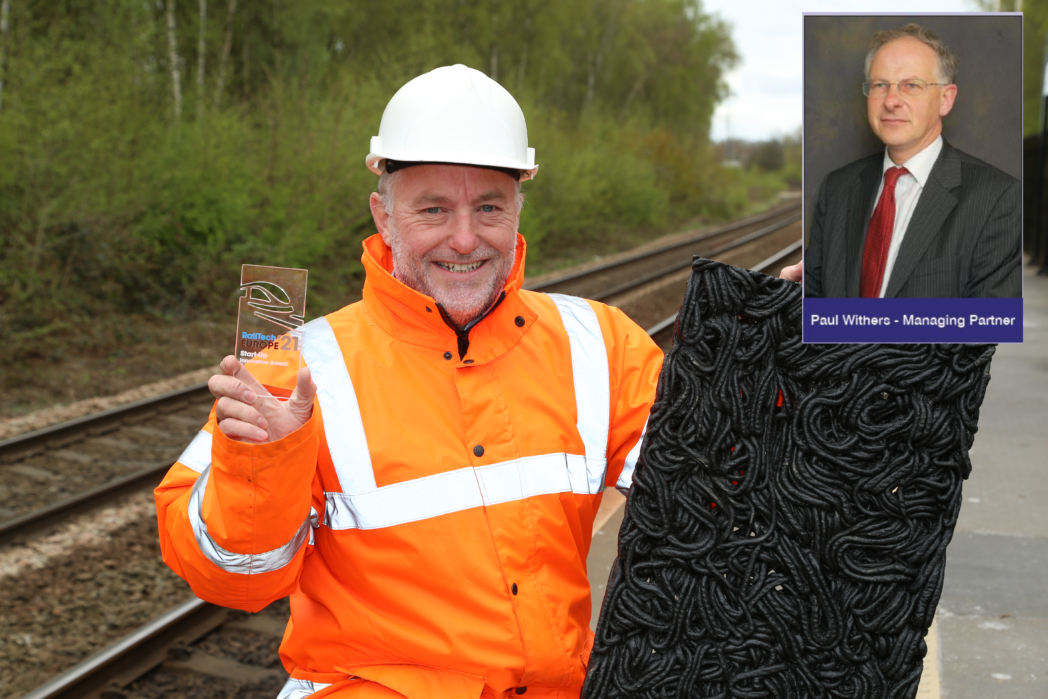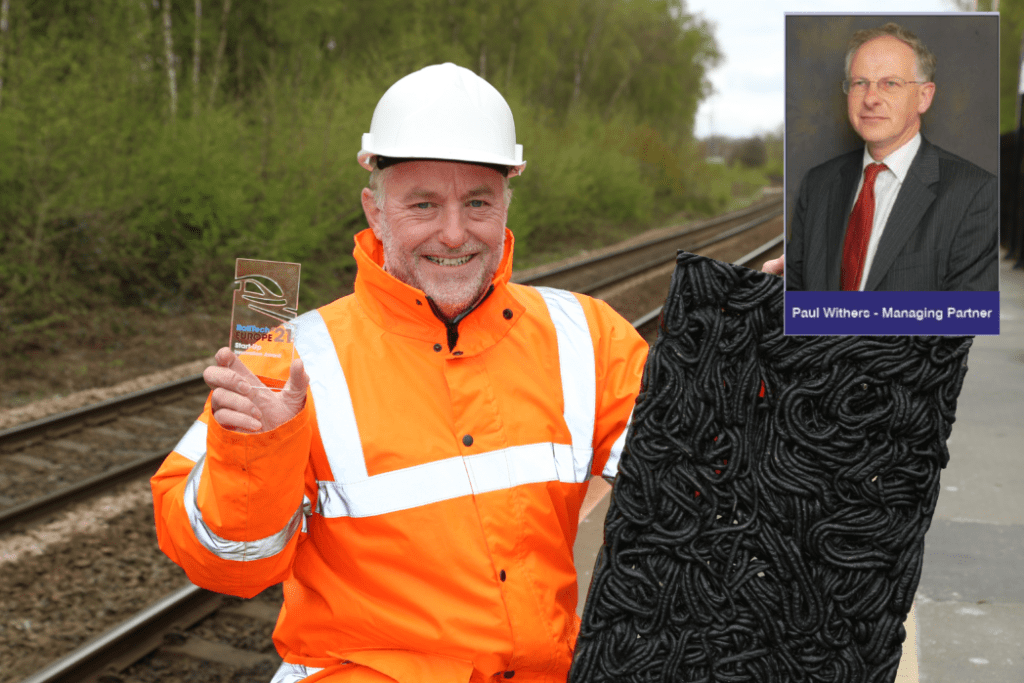
HBPW Joins Elite Concrete & Plastic Innovators
6/05/2021 - posted in UncategorisedThe development of cutting-edge technologies that will shape how concrete and re-cycled plastic are used in both the construction and rail sectors, are to get high-level input from HBPW.
Civil Water Management, which recently took first place in a major Euro rail award, has invited Senior Partner, Paul Withers, to join its board as a non-executive director, whilst Nationwide Engineering Group has asked HBPW’s top man to assist with ‘concrete’ research at Manchester University’s Graphene Engineering Innovation Centre (GEIC).
Paul, who recently stepped back from day to day running of large civil engineering projects at the company he founded more than 20 years ago, is now focussing on evolving next generation engineering techniques whilst mentoring younger professionals within the company and beyond.
He said: “I have been impressed with Civil Water Management’s rail track drainage system, TDS400, for some time now, a belief echoed in the RailTech Europe 2021 Innovation Awards, in which the company was adjudicated to be the best Start-Up by some of Europe’s leading rail experts and academics.

“The modular drainage panels not only reduce the number of workforce shifts required to upgrade rail assets – the number of people working in live rail environments falls dramatically – but also has the potential to save rail companies millions of pounds. I am greatly looking forward to exploring this ‘water management’ opportunity further, along with its implications for the Civil Engineering sector.”
Meanwhile, Nationwide Engineering Group and its joint Managing Directors, Robin Hibberd and Alex McDermott, are involved in exploring technologies surrounding the dosing of concrete with graphene, a process ultimately designed to improve the mechanical properties of the former. They have asked Paul Withers to join their hub of research professionals.
“Graphene is an allotrope of carbon and the resulting mix with concrete produces a substance that area for area, is stronger than steel.”
Currently concrete is good in compression but very poor in tension, hence the need for steel reinforcement in beams.
“Imagine if we could produce a ‘new’, super-strong substance which removed the need for integral steel. That would revolutionise engineering techniques so it is with that ambition firmly in our sights that me, Robin and Alex will be striving for in cooperation with Manchester University’s Graphene Engineering Innovation Centre.
“All of this makes for two new and exciting opportunities that collectively draw on a lifetime of knowledge.”
